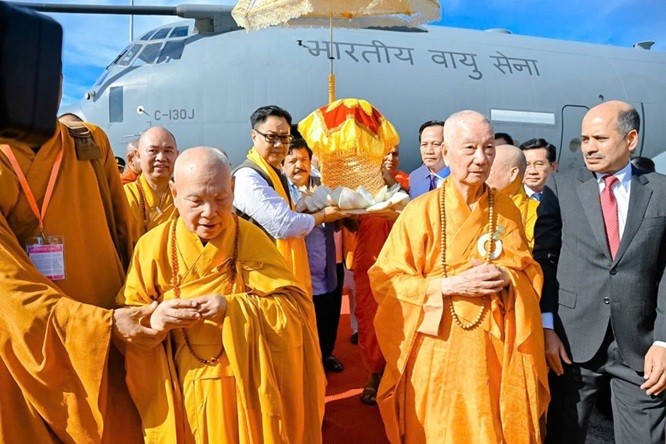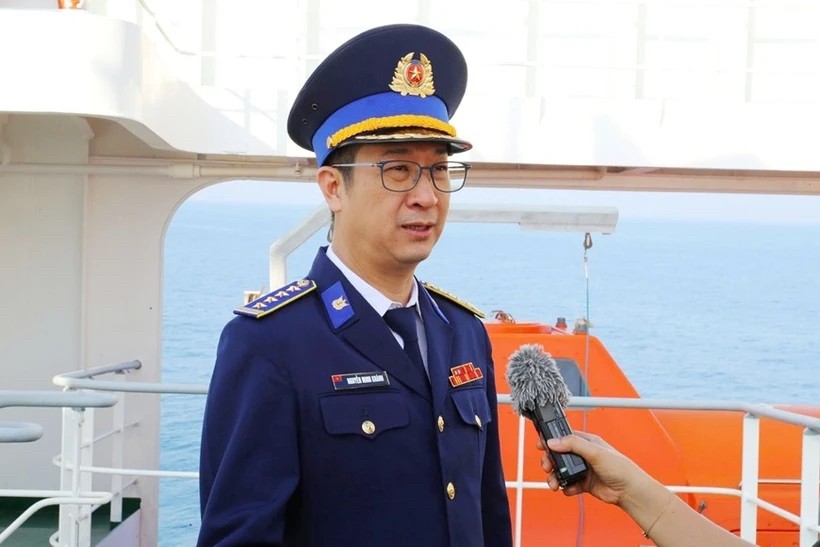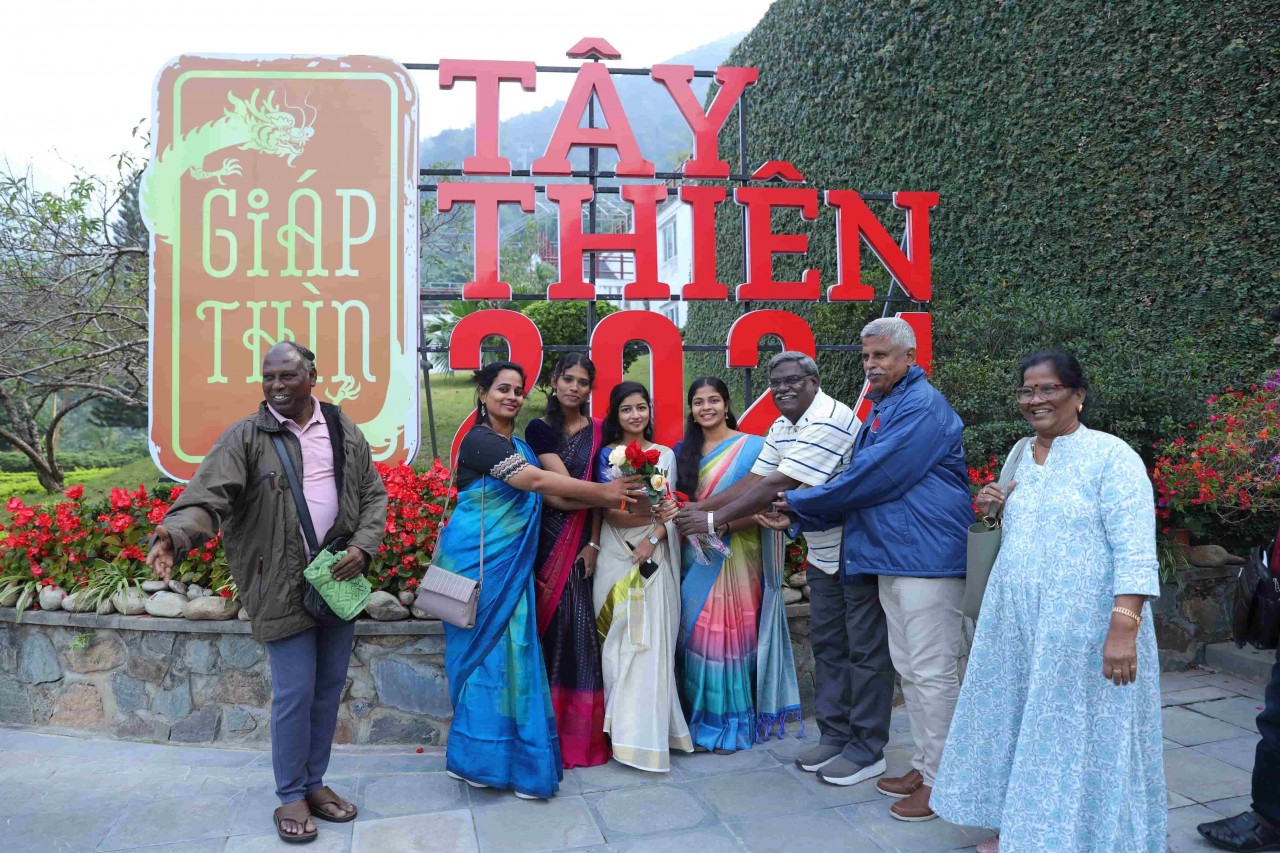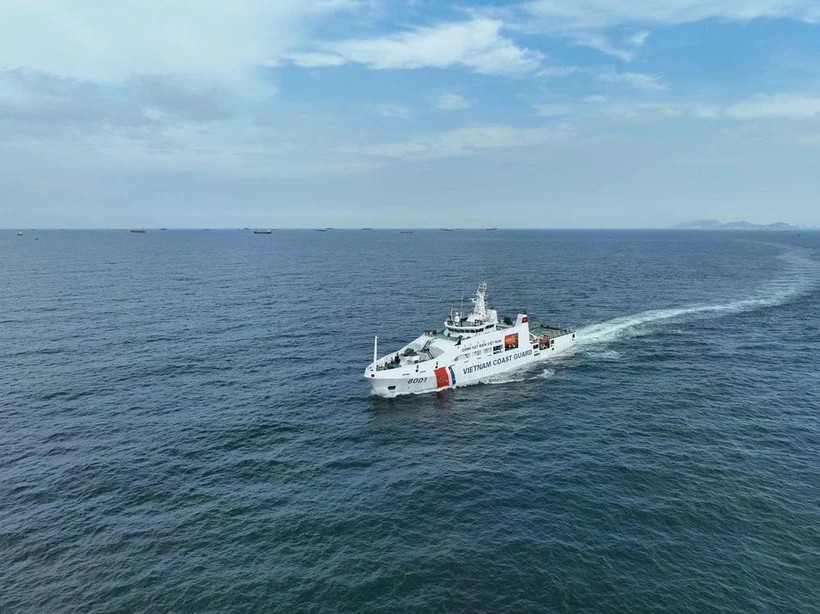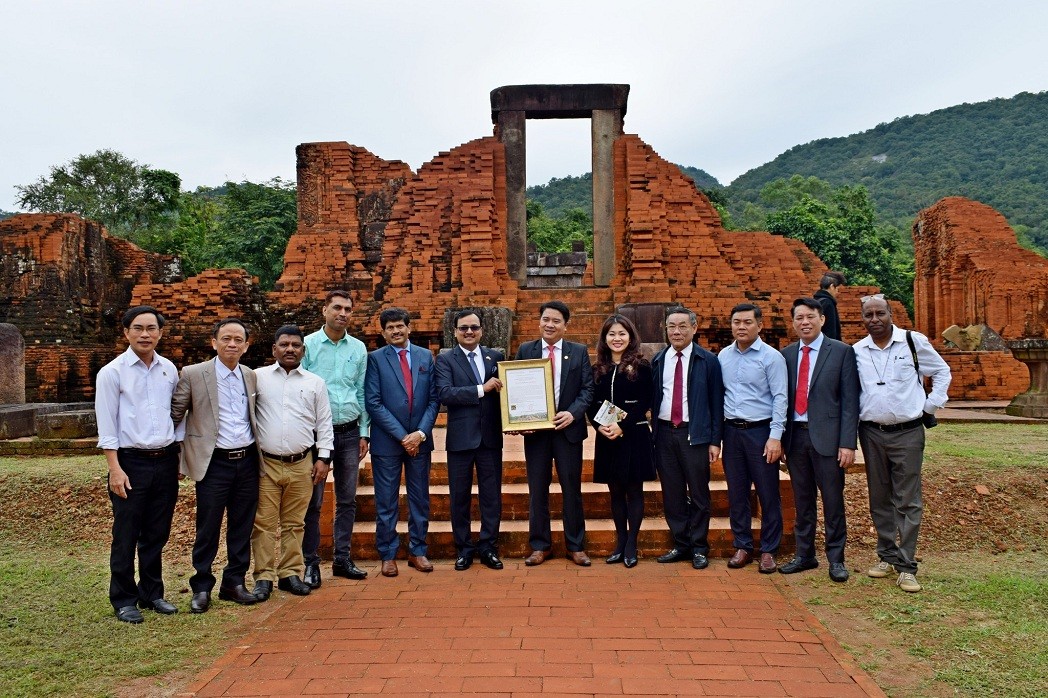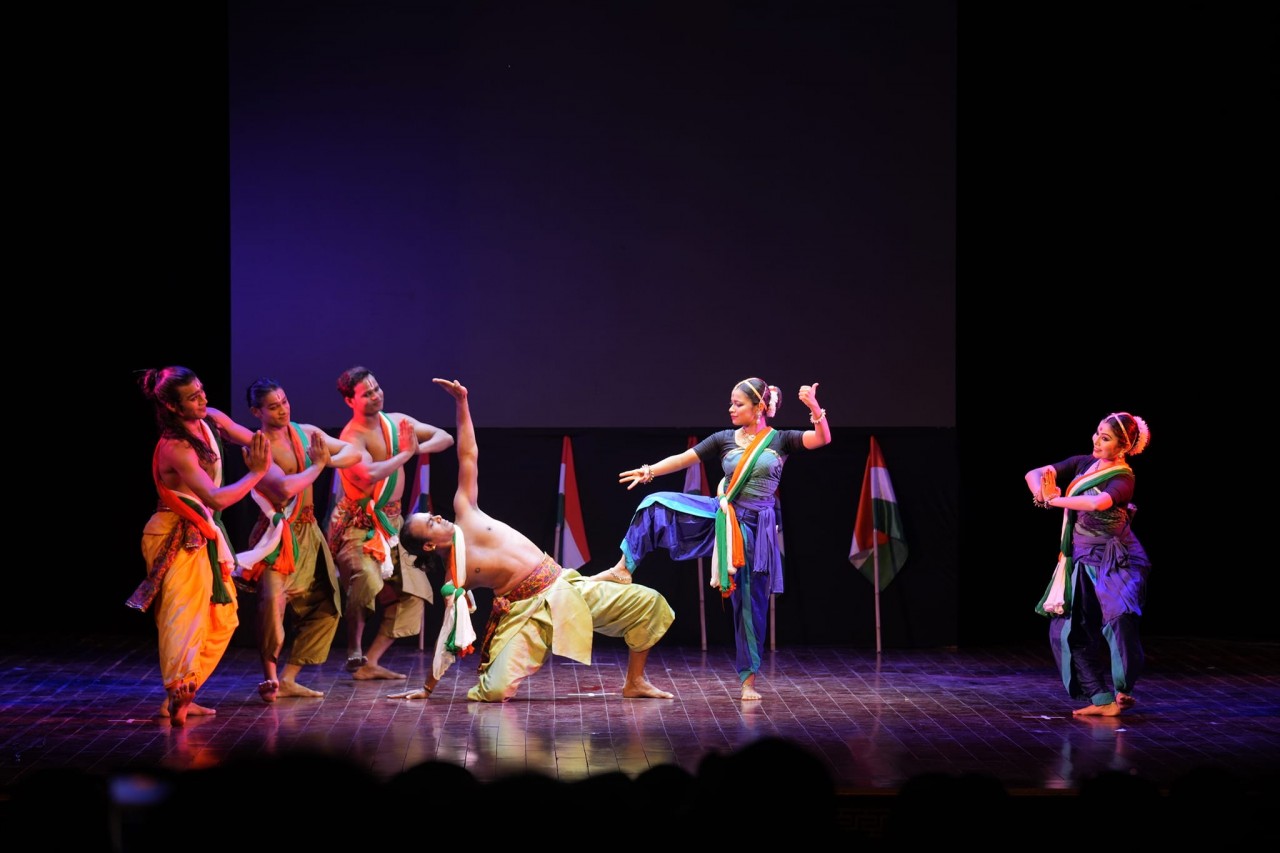Ambassador Extraordinary and Plenipotentiary of the Republic of India to Vietnam Pranay Verma
Vietnam and India: Over 50 Years Enjoying a Wonderful Journey Together
On the occasion of the 50th anniversary of the establishment of Vietnam-India relations (1972-2022), Vietnam Times Magazine interviewed the Ambassador Extraordinary and Plenipotentiary of the Republic of India to Vietnam Pranay Verma on diplomatic and economic achievements of the two countries with a vision and expectations in the coming time.
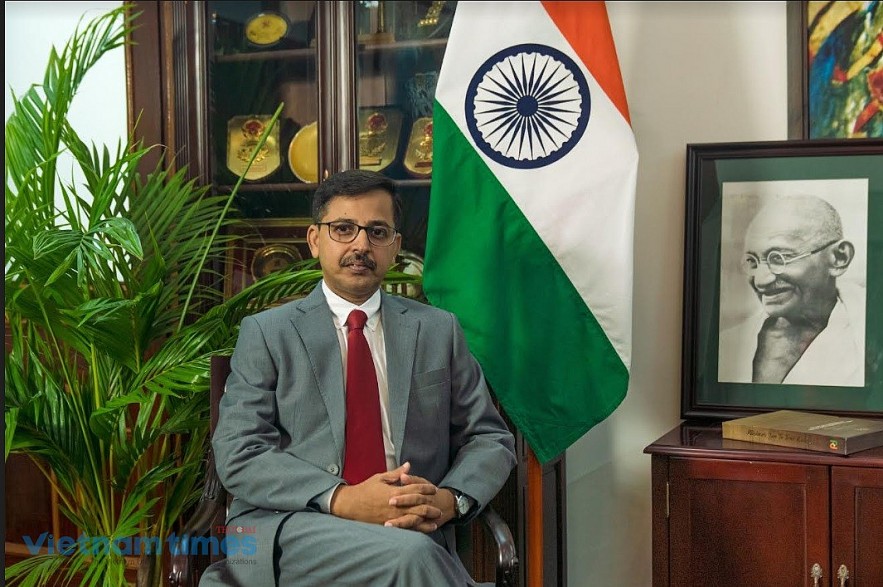 |
| Ambassador Extraordinary and Plenipotentiary of the Republic of India to Vietnam Pranay Verma. |
- How do you assess the situation and results of people-to-people and state relations between Vietnam and India over the past 50 years?
Diplomatic relations between India and Vietnam were established in 1972. However, our friendship and close relations predate that milestone. We have millennia old civilizational connection, which are manifest in our shared Buddhist and Cham heritage. As modern, independent nations, with shared history of struggle for independence from colonial rule and mutual admiration between their founding fathers, India and Vietnam have enjoyed excellent relations with a tradition of helping each other during adversities, showing sensitivity to each other’s concerns and aspirations, and supporting each other’s national development.
The depth of our ties has been affirmed frequently in our relations, most recently when we elevated our relations to a “Comprehensive Strategic Partnership” during the visit of Prime Minister Modi to Vietnam in September 2016.
This marked an important milestone in our relations and has led to our bilateral engagement growing from strength to strength.
If you simply count the number of exchanges between the top leaders of the two countries in the last few years, despite the disruptions caused by COVID-19 pandemic, it would give you an idea of the tremendous momentum in our relationship, with each interaction enriching the scope and substance of our cooperation.
At the Virtual Summit in December 2020, our Prime Ministers adopted a historic “Joint Vision for Peace, Prosperity and People” which sets the guiding principles for the future development of our bilateral relations.
Our Comprehensive Strategic Partnership today spans across wide-ranging collaborative pursuits – from political engagement to trade and investment ties, energy cooperation, development partnership, defence and security cooperation and people-to-people relations. This wide range of engagement itself shows the special relationship we share and the strength of our mutual trust and understanding.
As two of the fast growing economies, economic engagement between India and Vietnam is rapidly growing. From a meagre US$ 200 million in year 2000, our annual bilateral trade has grown over US$ 10 billion in the last few years. Our business and industries are looking at opportunities in each other’s country with greater expectations.
We are also building new partnerships in emerging sectors such as information and communication technology, renewable energy, innovation etc. The young demography of both our countries opens new opportunities for cooperation in diverse sectors.
India’s development partnership with Vietnam over the last half century has left a successful legacy and institution building and human resource development. India’s association with the establishment of Cuu Long Rice Research Institute and the Southern Horticultural Research Institute in the Mekong Delta Region in the 1970s, which changed the face of Vietnam’s agricultural productivity, still stand as icons of our development cooperation. Our Quick Impact Projects in 33 provinces of Vietnam today bring our development cooperation closer to the people, meeting socio-economic needs and by bringing direct benefits at the grassroots level.
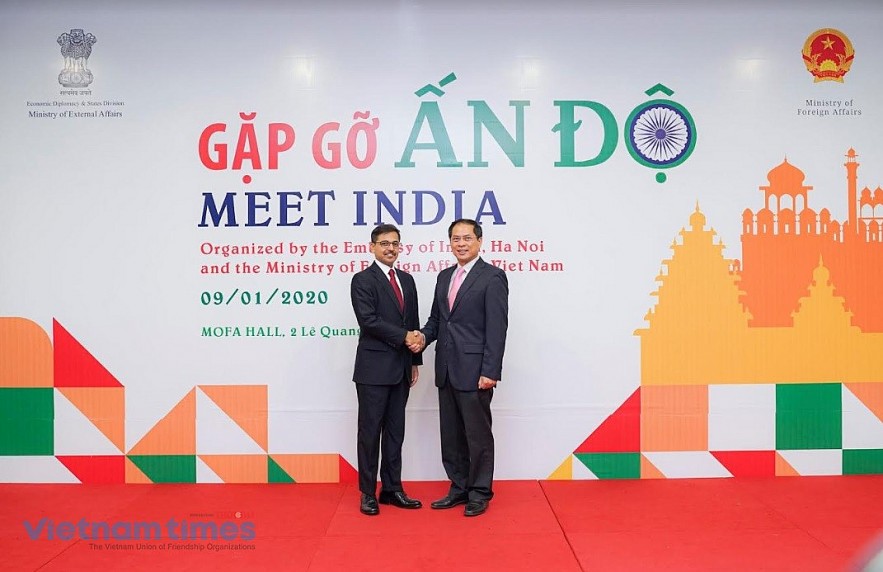 |
| "Meet India" creates a bridge to expand cooperation between India and Vietnam in many fields. |
Our cultural exchanges have also achieved new levels through our cooperation in archaeological conservation projects for some of our shared heritage in Vietnam. For example, India’s Archaeological Survey of India is doing a conservation project at the My Son World Heritage site of Cham temple complexes. This is a fine example of our cultural cooperation having a practical benefit.
In addition, we are also looking at promoting greater people-to-people exchanges. We have started direct flights in 2019, which brought about significant increase in number of people travelling from both sides to each other’s country. We hope to be able to resume these direct flights once the pandemic situation normalizes.
The wide-ranging development of our ties is largely attributable to our commitment to take a long-term and strategic view of our relationship based on deep mutual trust and understanding, as well as our mutual appreciation for each other’s national development.
Our converging visions for, and our common interest in, the peace, stability and prosperity of our shared Indo-Pacific region also provides a strong basis for our growing engagement. Today, Vietnam is an important pillar of India’s Act East Policy and a key partner for our Indo-Pacific Vision. We are also closely engaging with Vietnam in taking forward Prime Minister Modi’s vision for “Security and Growth for All in the Region”.
- What are the guidelines, viewpoints, areas and basic solutions to develop the people-to-people relation and business cooperation between the two sides in the coming time? What are the issues and their solutions?
The “Joint Vision for Peace, Prosperity and People” adopted by our leaders during their Virtual Summit in December 2020 sets the guiding principles for the future development of our bilateral relations in all areas, including people-to-people and business cooperation. It also offers solutions to the shared challenges faced by our two countries such as disruptions caused by COVID-19, lack of robust connectivity, developmental challenges to our societies including climate change etc.
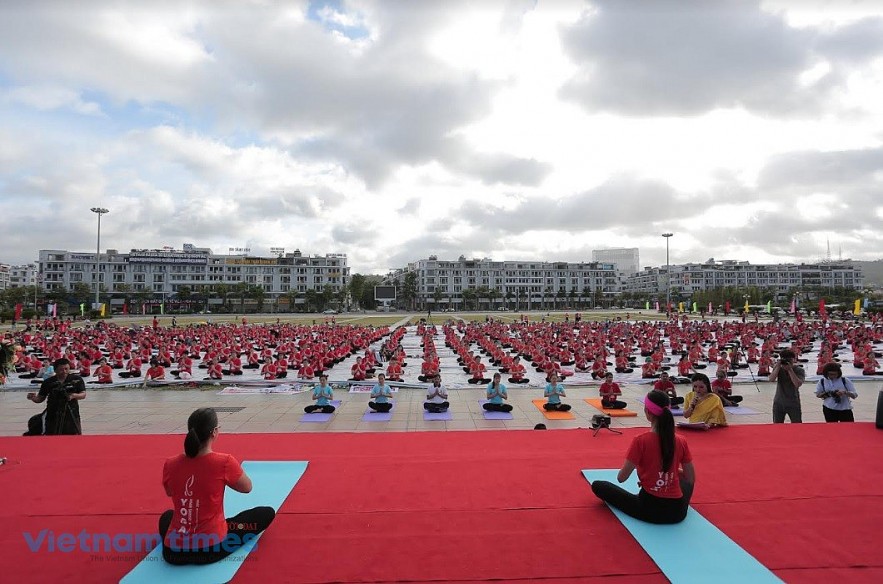 |
| Yoga flourishes in many countries all over the world, including Vietnam. |
For example, to promote people-to-people exchanges, the Joint Vision document emphasizes the deep cultural and historical bonds between India and Vietnam and their shared cultural and civilizational heritage, as an important foundation. It also identifies Yoga and traditional medicine as means to connect our societies. It envisages to promote closer people-to-people exchanges by increasing direct flights, providing ease of travelling through simplified visa procedures and facilitating tourism.
Focus on areas such as Parliamentary exchanges; relations between Indian States and Vietnamese Provinces; exchanges between political parties, social organisations, friendship groups and youth organizations; collaboration between educational and academic institutions; engagement between think tanks; joint research programmes; educational scholarships; and exchanges in media, film, TV shows and sports – all these have been identified as important enablers to widen and deepen our people-to-people exchanges.
Similarly in business cooperation, the Joint Vision document prioritizes cooperation in building new partnerships, and reliable and resilient supply chains to overcome the impact of COVID-19 and sets the target of US$15 billion of trade turnover at the earliest. It recognizes the strong complementarities between India’s large domestic market and the vision of self-reliance on the one hand and Vietnam’s growing economic vitality and capabilities on the other, and urges both sides to constantly upgrade their bilateral economic engagement by facilitating long-term investments in each other’s economy, promoting joint ventures, engaging in new global value chains, enhancing physical and digital connectivity, encouraging e-Commerce, facilitating business travels, upgrading regional trading architecture and mutually providing greater market access.
The Joint Vision focusses on new prospects for cooperation between our two countries driven by the promise of new technologies, innovation, and digitization to deliver good governance, people’s empowerment, and sustainable and inclusive development, and seeks to harness synergies between India’s “Digital India” mission and Vietnam’s “Digital Society” vision. It also identifies sustainable development and climate action as important areas of future cooperation.
- Could you share a brief introduction of India's achievements today to our readers?
India today is world’s fifth largest economy. India has a vision of becoming a US$ 5 trillion economy over the next few years. With sound economic fundamentals and some bold reforms undertaken, we are confident of achieving this goal.
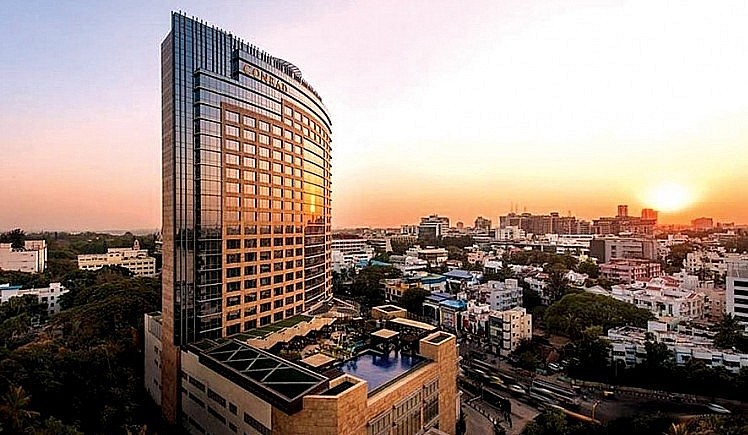 |
| Bangalore (India) has emerged as one of the 18 most innovative cities in the world according to prestigious electronic newspaper Business Insider. |
In shaping the global response to COVID-19, Prime Minister of India, Shri Modi has underlined the concept of “human-centric globalization” and envisioned a “self-reliant” India, which is self-sustaining and resilient, not by isolating itself, but by building capacities at home so that India can integrate better with the global value chains. We believe that given its size, capacities and ambitions, India will be a major factor in the post-pandemic global revival. And the steps that India is taking are not incremental; they are transformative.
This transformation to a New India is not limited to just economic growth. It also entails good governance, people’s empowerment, particularly through use of technology, and inclusive and sustainable development.
Despite the economic devastation caused by COVID-19, India’s agile response in fighting the pandemic and ensuring economic stability has been noteworthy. The International Monetary Fund (IMF) has forecast a 9.5% growth in the Indian economy in 2021. Our trade performance has also been strong, growing by more than 20% this year. Despite COVID, India attracted record FDI inflows of $77 billion in 2020-21 and another $22 billion in the first three months of this year. WIPO has ranked India number one in the Global Innovation Index 2021 in the Central and South Asian region.
Today, India is among the few large economies that have delivered on its commitments to fight against climate change. Even as we strive to lift millions of our people out of poverty, we have continued to meet our global environment obligations. Today India ranks 4th in the world in installed renewable energy capacity. India has also given institutional solutions to cooperate with the world at the international level, such as the International Solar Alliance and the Coalition for Disaster Resilient Infrastructure for climate adaptation. Prime Minister Modi’s recent call for One Sun, One World, One Grid and Green-Grid Initiatives are expected to lead to the development of a cohesive and robust global grid.
India today has a middle class larger than the population of many countries in the world. With the size of its population, its big market, and its rising political and economic aspirations, the choices that India makes and its efforts to meet its socio-economic and developmental goals, will naturally have a great significance for the region and the world.
We want countries in the region, particularly friends like Vietnam, to be partners in India’s socio-economic transformation and create shared prosperity.
- What can Vietnam learn and consult from India in the fields of technology and start-up, pharmaceutical development?
India has one of the world’s largest start-up ecosystems driving technology and innovation, attracting new investments and generating tens of thousands of direct employment. Indian Startups have so far created 65 unicorns, out of which 28 unicorns were added during 2021 alone. We stand ready to share our experience with Vietnam. Government of India’s ‘Startup India’ mission has been proactively creating an enabling environment for development of start-ups and harnessing the large pool of talent with innovative ideas. Vietnam, too, is increasingly focused on innovation to improve productivity, and its Startup industry is well-recognized. This is certainly an area of significant potential where we may learn from each other’s experiences, policies and enabling environments, as well as explore collaborative partnerships in areas such as IT services, e-commerce, fintech, healthcare services, logistics etc.
We are also willing to share with Vietnam our experience of developing a world-class pharmaceutical R&D and manufacturing ecosystem in India. The Indian pharmaceutical industry is a major contributor to the global healthcare system with underlying strengths of a large scientific manpower and robust R&D capabilities that have evolved over the last nearly 50 years. Indian pharma companies are today among the most competitive ones in the generic and vaccine space in the world, including in developed economies. As the ‘Pharmacy of the World’, India has also been at the forefront of the global fight against the COVID-19 pandemic. As the collective global focus shifts to healthcare concerns in managing the
COVID-19 pandemic, there can be enormous scope for Vietnam to benefit from its healthcare partnership with India, including in procurement of generic medicines from India that can significantly help Vietnam in reducing its cost of healthcare.
- What is your biggest impression of Vietnam in the past and present?
In India, Vietnam has always been viewed as one of our closest friends and most trusted partners. The people of Vietnam are admired in India for the grit and determination with which they have overcome adversities to build a modern nation, which is today counted among the fastest growing economies in the world.
Buddhist connection and civilizational and cultural contacts between India and Vietnam are well known. Our modern histories have inspired each other, marked by deep empathy for each other’s independence movement and strong bonds of friendship between our founding fathers. President Ho Chi Minh’s visit to India in 1958 is still remembered with warmth by the Indian people.
At the same time, I have been deeply impressed by an overwhelmingly positive sentiment towards India and a reaffirmation of our long tradition of supporting each other’s national development and aspirations.
After living in Vietnam, what has also struck me is the warmth of the people here and their enthusiasm and confidence about their future. The whole nation exudes the dynamism that reflects its status as one of the fastest growing economies in the world. Despite the hardships brought on by the COVID-19 pandemic, the people of Vietnam remain optimistic about overcoming them.
- What do you expect for the relationship of the two countries in the future?
I am most optimistic about this relationship’s future. I believe that this relationship is full of promise. We are two aspirational societies with very youthful demography. Our development visions have many overlapping areas. We are two rapidly growing economies. We both are committed to overcoming shared challenges like climate change and poverty, to achieve sustainable and inclusive development. We have similar views on many regional and international issues, which creates significant grounds for closer cooperation on regional and international stage. We both are committed to international law and believe that India-Vietnam cooperation provides a factor of stability in our shared Indo-Pacific region. So, I am most optimistic about this relationship. And I am sure, just as we have achieved rapid growth in our ties over the last five decades of our diplomatic relations, we will be able to achieve even more rapid and more qualitatively higher engagements over the next five decades.
- Thank you very much!
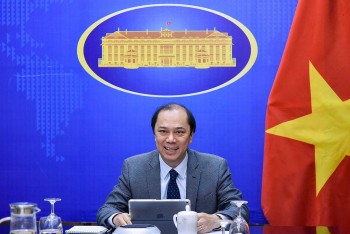 | Vietnam and India Strengthen Cooperation Vietnam and India agreed to strengthen cooperation in potential fields such as information technology, renewable energy, high-tech agriculture and innovation. |
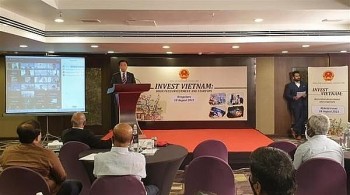 | Vietnam and India Further Promote Cooperation Through Innovative Startup Ecosystem The Vietnamese Embassy in India, working in co-ordination with authorities of Bangalore, the capital of Karnataka state, held a Vietnam-India investment and startup forum on ... |
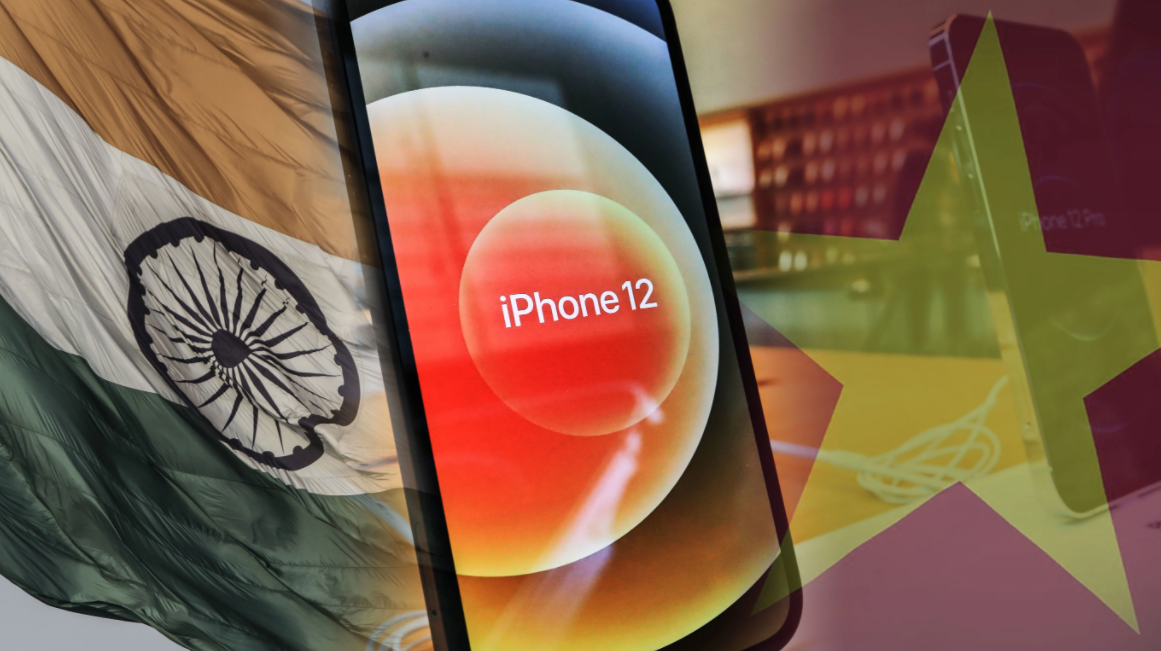 | Apple promotes production in Vietnam and India Apple ramps up iPhone and iPad output shift to India and Vietnam, including Macs, AirPods, and more |
In topics
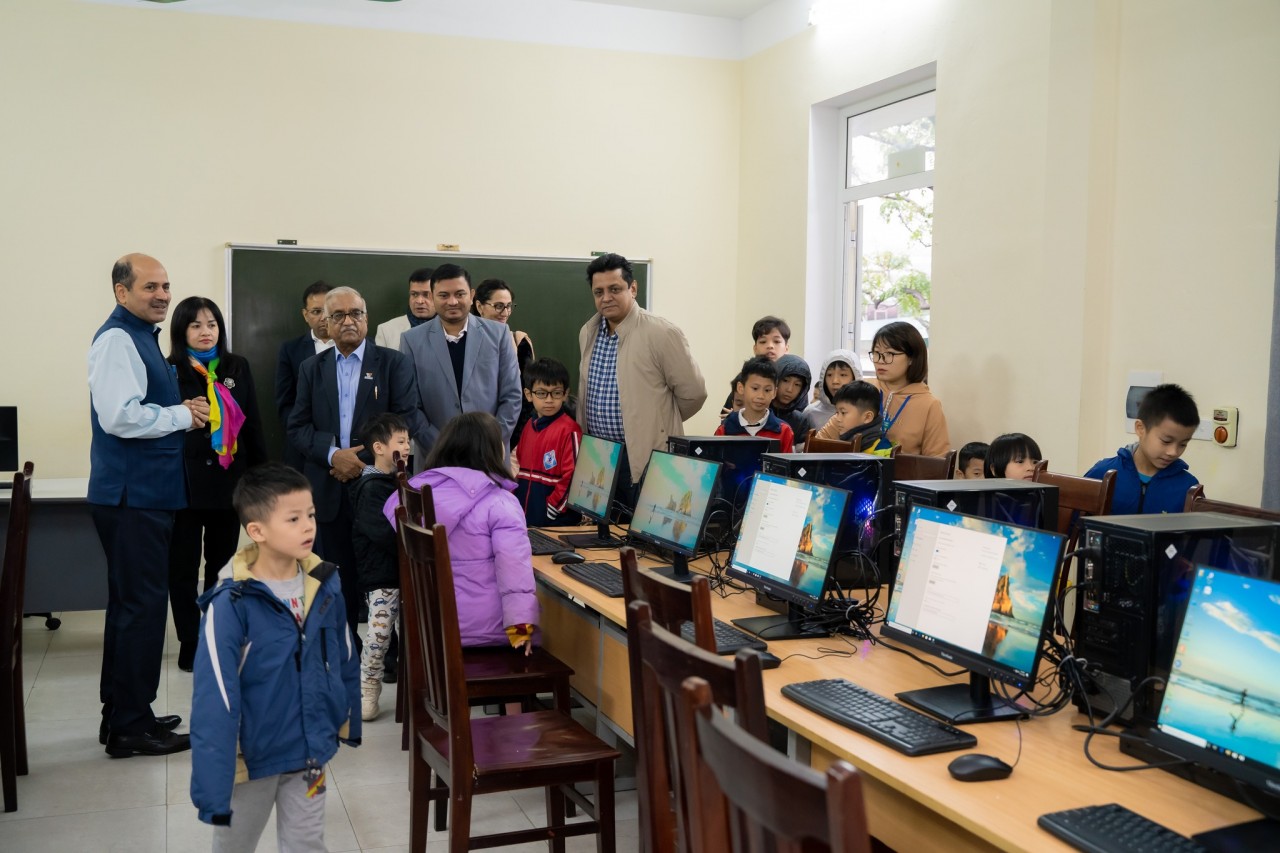 Friendship
Friendship
Indian Businesses Present Computer Lab for Disadvantaged Children in Hanoi
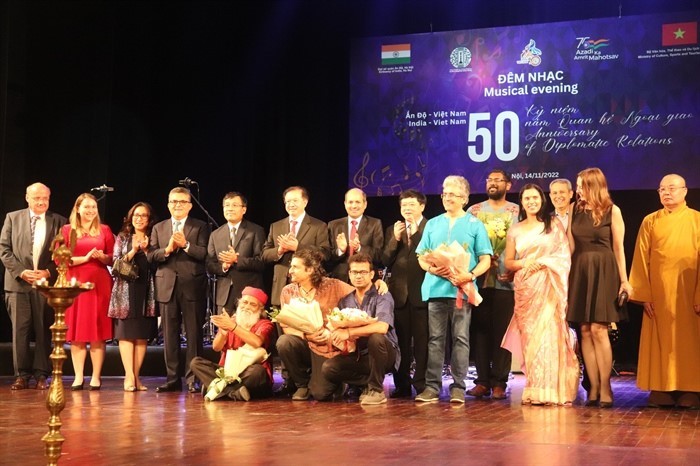 Focus
Focus
A Unique Musical Night Celebrating 50 Anniversary of Vietnam - India Relationship
Recommended
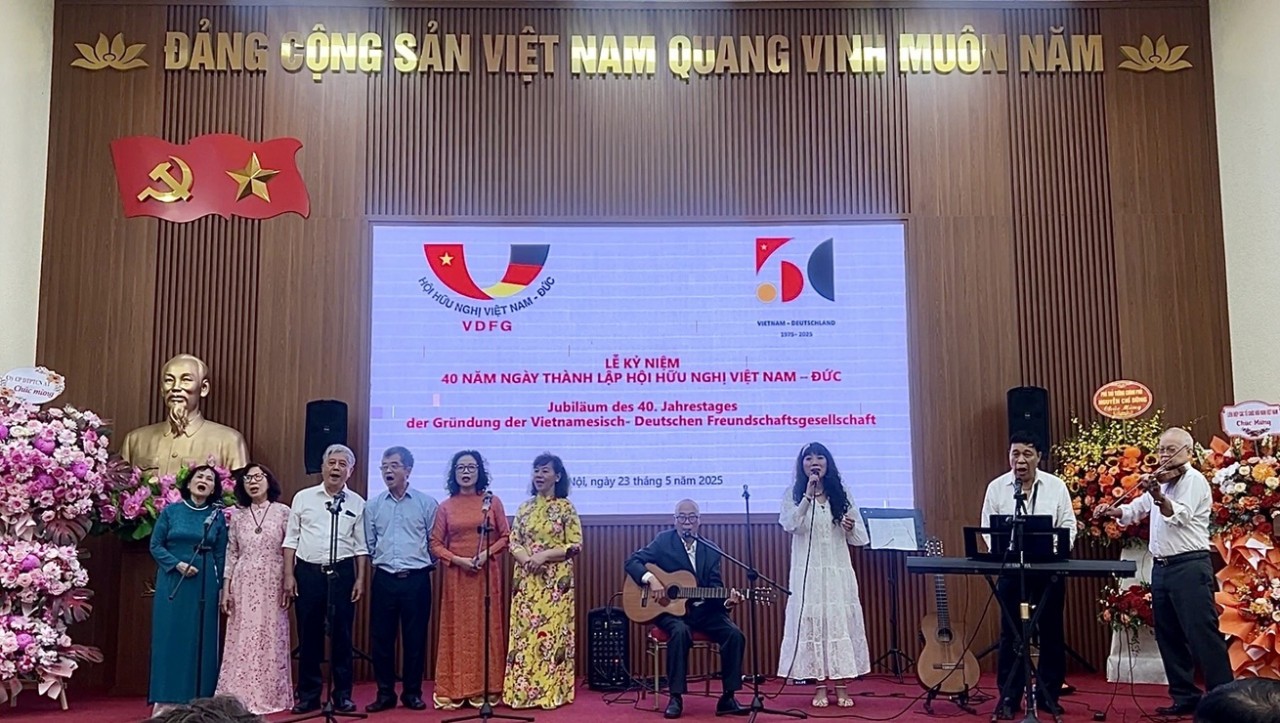 Focus
Focus
Solid Bridge for People-to-people Relations between Vietnam and Germany
 Friendship
Friendship
Vietnam, Cuba to Boost Cooperation in Health Sector
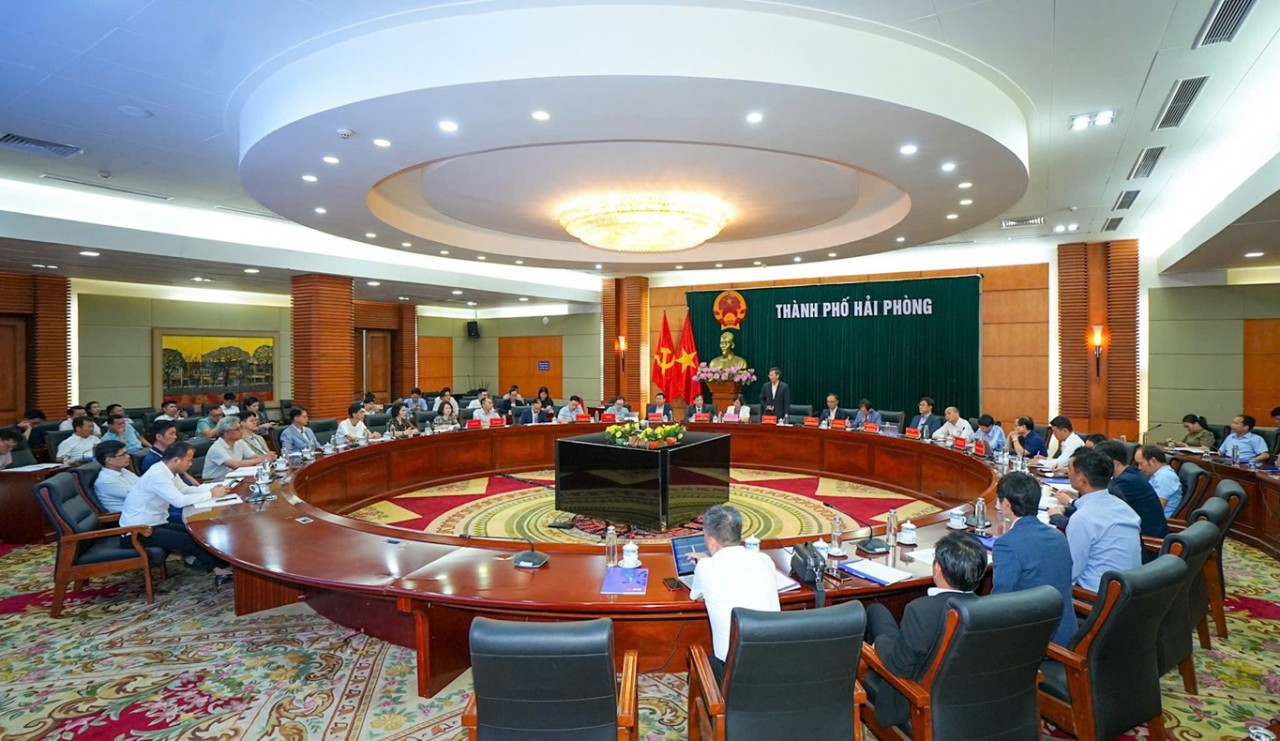 Friendship
Friendship
Hai Phong Promotes Vietnam-RoK Cooperation in Technology and High-quality Human Resources
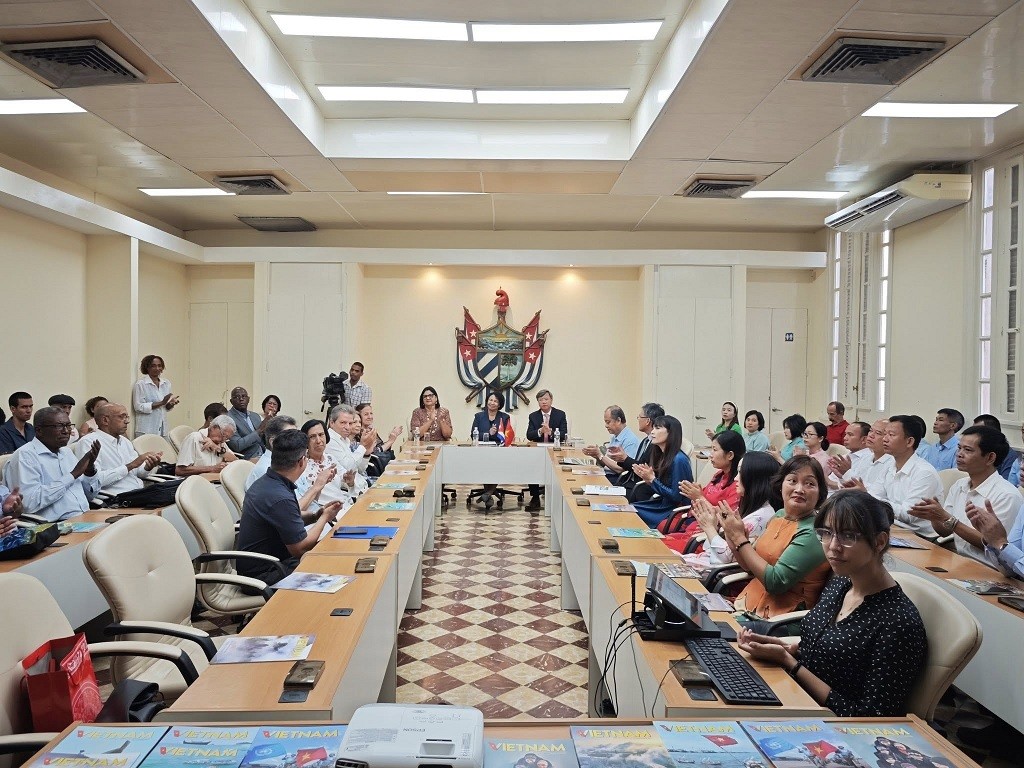 Friendship
Friendship
University of Havana Launches Department of Ho Chi Minh Studies
Popular article
 Friendship
Friendship
50 Years of Mexico-Vietnam Diplomatic Relations: Building the Future Together
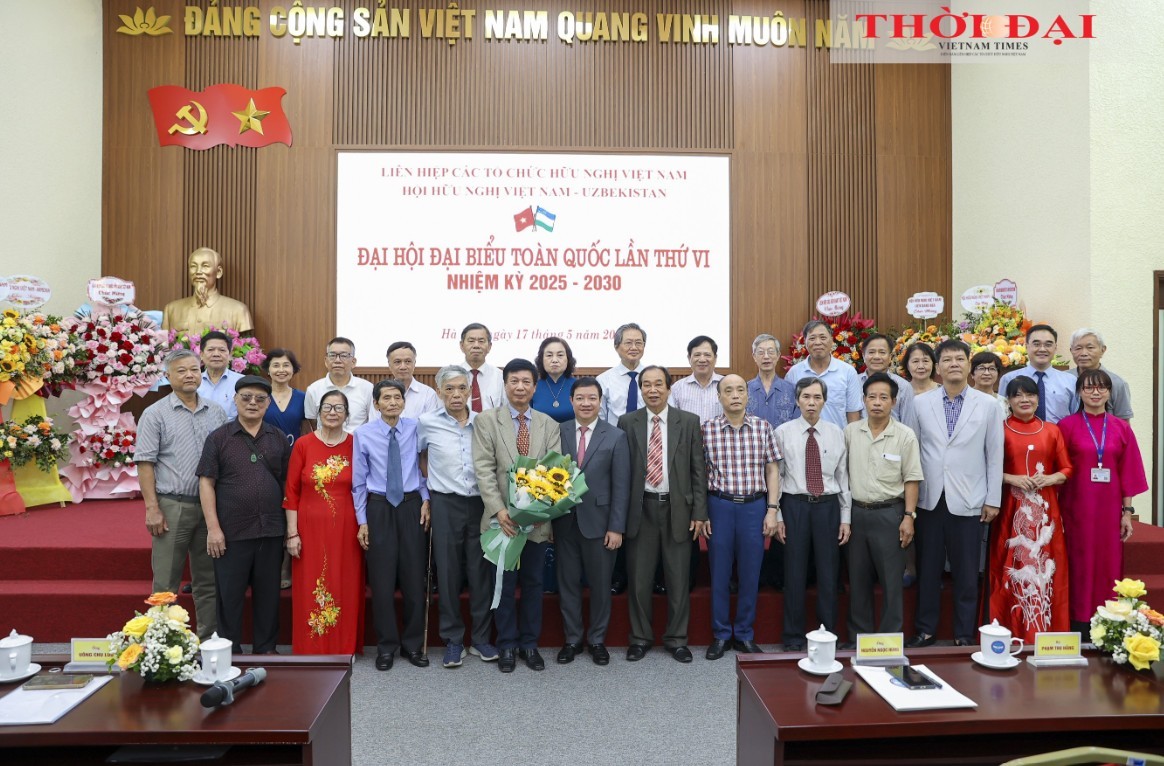 Friendship
Friendship
Vietnam–Uzbekistan Friendship Association Elects New President
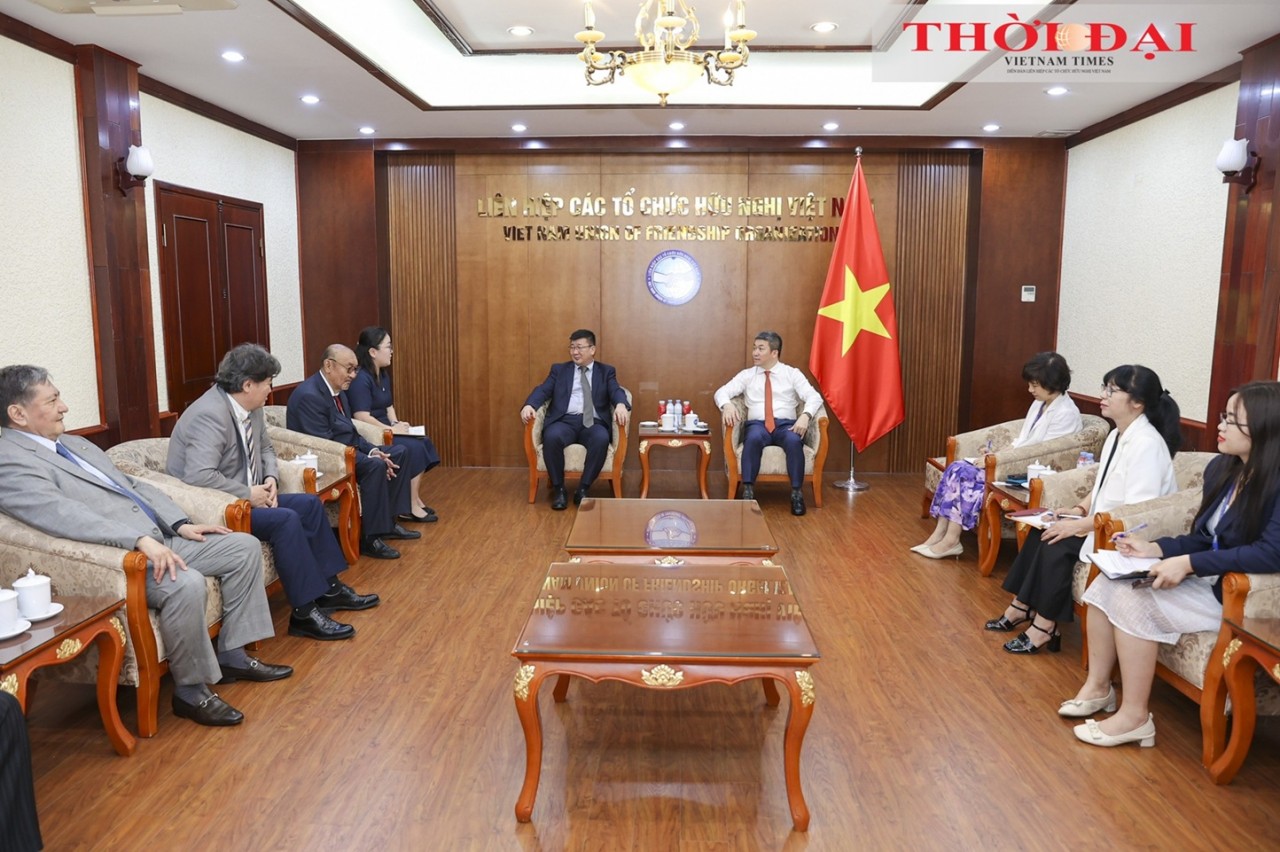 Friendship
Friendship
Delegation of Retired Mongolian Diplomats Promotes People-to-people Cooperation with Vietnam
 Focus
Focus




